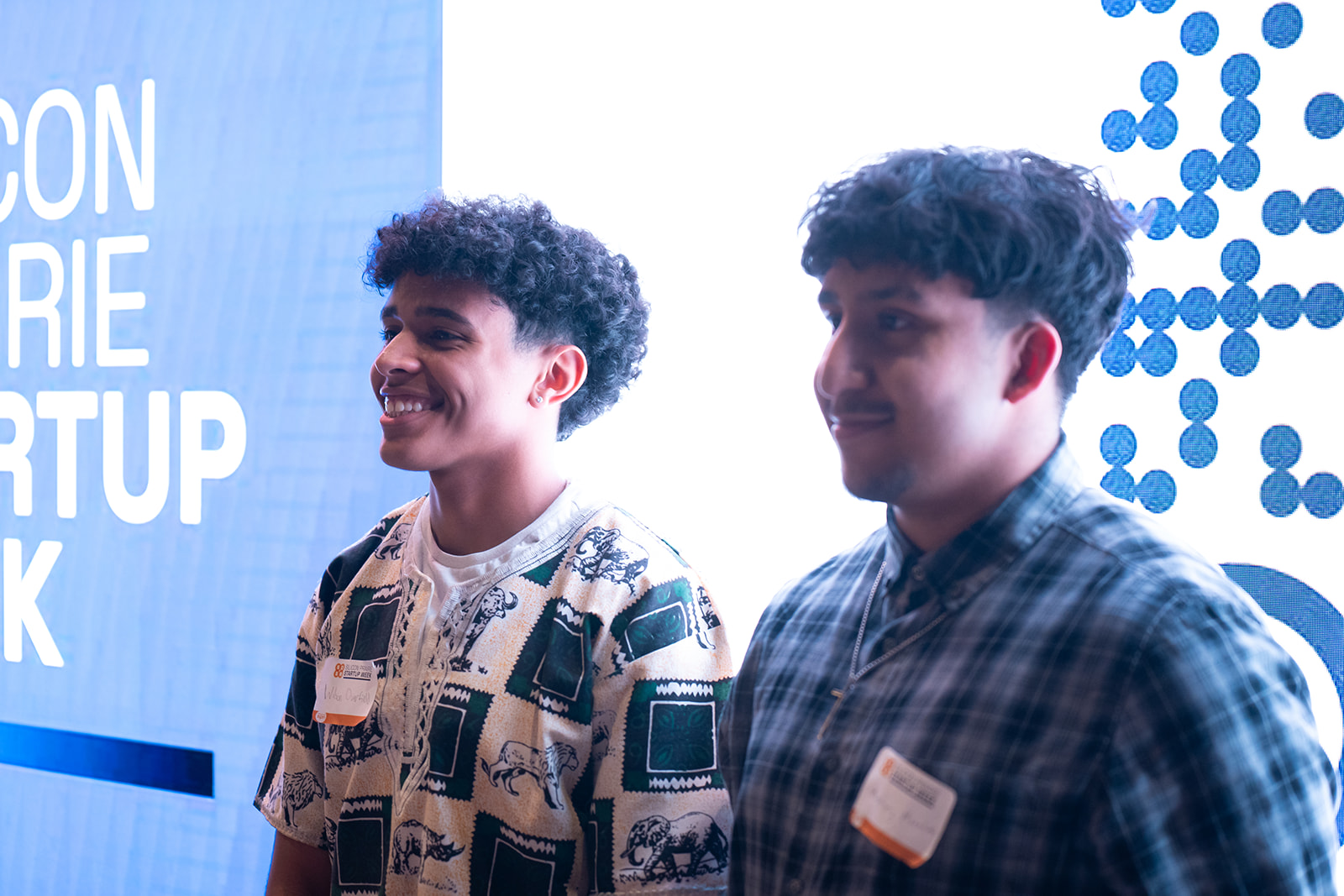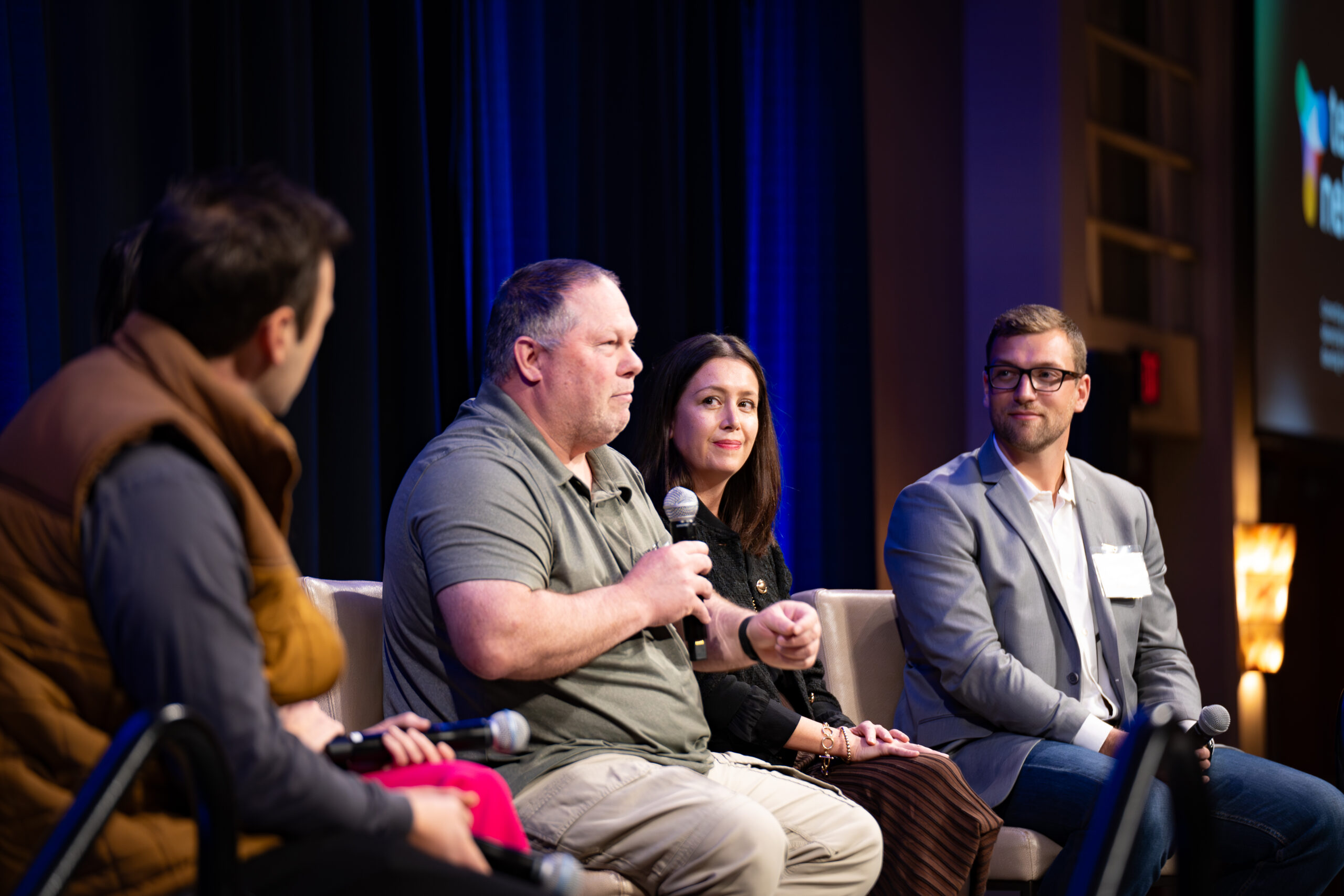 1 Million Cups Omaha-Lincoln has shared founding stories, success stories, post-mortems and Wednesday, an acquisition story from Craig Walter of It’s Deductible, a tax software startup acquired by Intuit, the makers of TurboTax, in 2003.
1 Million Cups Omaha-Lincoln has shared founding stories, success stories, post-mortems and Wednesday, an acquisition story from Craig Walter of It’s Deductible, a tax software startup acquired by Intuit, the makers of TurboTax, in 2003.
“I’m talking about a great success story where a bunch of guys got together and just fortunately were there at the right place and right time and found a need out in the world,” Walter (below) told the 1 Million Cups crowd. 
Walter started the company out of his basement in the early 2000s, working with a Lincoln-based tax accountant who needed software to assess value and itemize things people gave away to charity for tax deduction purposes.
The first version sold more than 300 companies while he was still in his full-time job. The next year, 1,000 copies sold.
BECOME A SPONSOR
Join us in championing the narrative of success, resilience, and ingenuity that defines Nebraska’s startup community. Learn more »
“There were more than 20 million people filing stuff like this on their return,” he said. “There was a market.”
Enter Gordon Whitten, partner in Income Dynamics, the parent company of It’s Deductible. Together, they raised $300,000 from venture capitalists and made a push to partner with a top tax software company. The goal was always to sell the software.
“We had a one year deal with H&R Block who said no one would pay for it, but a year later, it was the biggest third party software they’ve ever had,” he said.
But H&R Block didn’t re-up the contract.
It’s Deductible went on to raise $3 million more in funding, acquire the intellectual property rights of the software and a Boston company that had fair market value data for online auctions.
With H&R Block out, they called TurboTax.
Whitten made connection after connection, finally getting a cell number for a VP of the company, who happened to be on vacation when he called.
They set up a meeting and worked on a deal. It took nine months to negotiate a four-year partnership deal with the mergers and acquisition department only to have a Vice President said he would only do a two-year deal.
“We argued for four years and he said, ‘Guys that’s fine. We’ll do a one year deal and then build our own and compete,’” Walter said. “So we ended up signing a two-year deal and within a week they called and said they wanted to buy us.”
So In 2003, they sold the business to TurboTax.
“We didn’t want to run it for 15 years… so we aimed to sell it in five years. We got out in three.”
He said he could share hundreds of lessons he learned along the way, but there’s not enough time to share them all. Here’s five Walter did share:
1. Manage tension of greed before it destroys your dream
“There’s always tension of saying ‘Hey, I started this, I own this, it was my idea and I should get what I want.’ You have to manage your greed because it doesn’t go away. Don’t let greed make decisions for you.”
2. It’s not about your product—it’s about your ability to sell your product
“‘Build it and they will come’ is not how business works. You are not a product or service company. You are a marketing company that happens to sell a product or service. This fundamental mindset is how you make decisions, what you do with your time. Investors don’t care how good your product is if you cant sell it.”
3. Know your goals
“We knew in the first six months we were going to sell it. It affects the way you make decisions, the amount of investment, who the investors are, how much money you’re spending. A lot of people just build a business to build it. Maybe it’s what you want to do for your life and you don’t want to sell your business. That’s fine, but you gotta know either way.”
4. Find a durable competitive advantage
“The main reason Intuit partnered with us instead of compete is because of the data we had — 10,000-plus consumer product values — acquired from the company from Boston. Find that durable competitive advantage, a competitive advantage that’s hard for someone to recreate. That was 100 percent the reason we bought that company. Our product isn’t that hard to create, it was just hard and time consuming to harvest the right data.”
5. The best thing is to learn from each other
“In 2001, I thought I was a sharp businessman to some extent, but as I went on, I realized I didn’t know much. The best thing you can do is doing what you’re doing right here — learning from each other and developing a sense of community among small business owners.”
Since Walter sold the company, he’s helped other companies get off the ground, invested in some companies and has done a lot of business coaching. Now he works as missions director at Christ Community Church.


